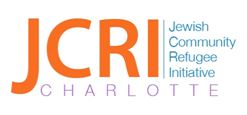As we enter the final week of Elul, we move into our final topic of reflection, Kehilah: Community. Writing about community was such a popular choice for our bloggers that we had more blogs than days of the week, and had to stop offering it as an option! Reading their words, you will find it easy to understand their desire to lift up their experiences in community, and this community in particular.
In my short time here, I have seen, over and over again, the way in which our Temple Beth El family shows up for each other. We celebrate each other’s joys together and hold each other up in times of sorrow. And we support those in need, whether they are part of our temple family, our Charlotte community, our global Jewish brothers and sisters, or the stranger, widow and orphan for which we are held responsible by our Torah and our tradition. It is this commitment to care for those in need that makes us more than just a kehilah, a community, but in fact a kehilah kedosha, a sacred community.
Last Tuesday, Attorney General Jeff Sessions announced that the Trump Administration is rescinding Deferred Action for Childhood Arrivals (DACA), the program that has granted temporary deportation relief to about 800,000 young people brought here illegally as children.
As Rabbi Knight wrote that day, this decision “will likely affect hundreds of thousands of people, tear apart families, send people underground, make people unemployable, and possibly lead to deportations. A part of me wonders what happens when hundreds of thousands of Dreamers become refugees in their own country.”
We are Ivrim, Hebrews, the people who cross over. We have been refugees in every age. As we begin this week of reflection on community – both what we have received from our community and what we ourselves contribute to our community, I share the below action statement on  behalf of JCRI, the Jewish Community Refugee Inititative, a lay-driven project supported by several Shalom Park agencies and a partner project of Temple Beth El that empowers members of the Jewish community to assist refugees in Charlotte.
behalf of JCRI, the Jewish Community Refugee Inititative, a lay-driven project supported by several Shalom Park agencies and a partner project of Temple Beth El that empowers members of the Jewish community to assist refugees in Charlotte.
Read below, and think about which way you might contribute; members of our community are counting on it.
In response to the President’s phased termination of the DACA program (Deferred Action for Childhood Arrivals) and the looming October 5 deadline for filing DACA renewals, JCRI suggests the following:
1. Attend educational programs with lawyers, religious leaders, Dreamers themselves to understand the issues and build support for further action if you choose advocacy.
- Mark your calendars for September 18th, 6:30 pm at St. John’s Baptist Church: Charlotte Center for Legal Advocacy (CCLA) immigration attorney Maureen Abell will talk about DACA rescission and the impact that other changes to immigration policy has had on Charlotte over the last year.
- The Stan Greenspon Center Refugee Advocacy Network will be hosting an educational session for the entire community on the Dreamer issue, (date TBA), at which time they will vote on revising their advocacy agenda to include support for the new Bipartisan Dream Act.
2. Volunteer. Stay tuned to the JCRI website or updates from JCRI found in your organization’s newsletters or email blasts. Volunteers will be needed in some capacity to assist at DACA workshops, perhaps for copying, babysitting, and/or providing water and snacks.
3. Donate funds to help DACA youth submit renewal requests by the October 5 deadline. The filing fee is $495, a steep financial barrier for any young person with four weeks’ notice. Consider donating any amount you can to Charlotte Center for Legal Advocacy (CCLA), formerly Legal Services of Southern Piedmont, which is coordinating with the Latin American Coalition, Community Collectiva, International House, the NC Justice Center and other partners. Donations for the DACA Support Fund will be matched dollar for dollar by a member of our Jewish community, up to $25,000. for the DACA Support Fund. Donations must be made by October 5 for the matching grant to apply.
CCLA will accept tax-deductible donations by check (1431 Elizabeth Avenue, Charlotte, NC 28204, put DACA on memo line), through their website, or use this link and direct your donation to the drop down selection, DACA Support Fund.
CCLA will make assisting with DACA renewals the highest priority for its Immigrant Justice Program through October 5 by hosting three DACA renewal clinics with lawyers, advocates, and staff on hand to help provide application assistance. Its staff will also assist DACA youth through scheduled appointments. Clinic dates, times, and location can be found on CCLA’s website. The number to set up an office appointment or to register for assistance at a clinic is 800-247-1931 (both Spanish/English spoken) so that needed documents checklist can be reviewed.
4. Contact members of your Congressional delegation in the House of Representatives and Senators Burr and Tillis in the Senate to express your views on the proposed bi-partisan 2017 DREAM Act sponsored by Senators Durbin and Graham, also known as the BRIDGE ACT (S. 128/H.R. 496).



